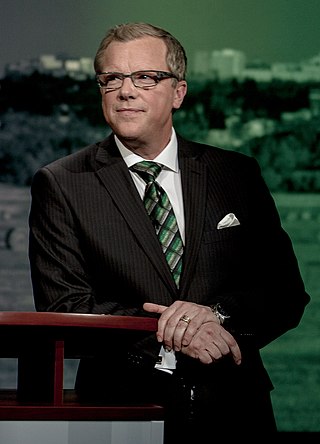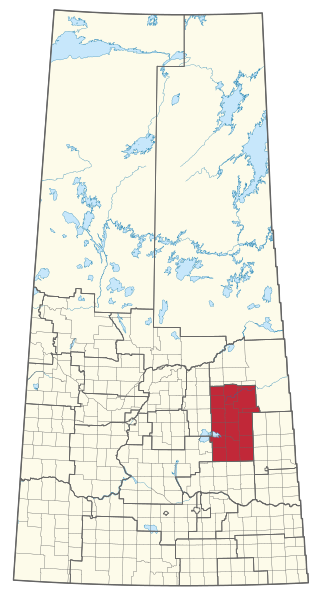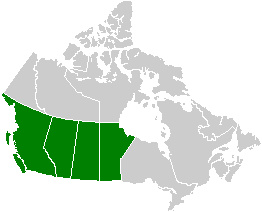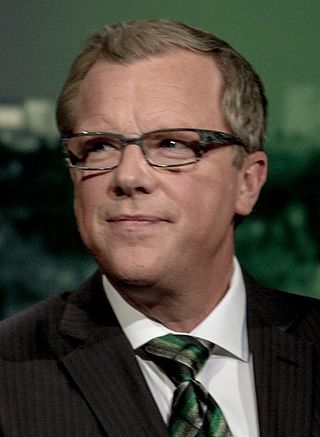Related Research Articles

Lorne Albert Calvert is a Canadian politician who served as the 13th premier of Saskatchewan, from 2001 to 2007. Calvert served as leader of the Saskatchewan New Democratic Party and Member of the Legislative Assembly for Saskatoon Riversdale from 2001 to 2009, when he retired. He also served as the MLA for Moose Jaw Wakamow from 1986 to 1999.

The Saskatchewan Party is a conservative political party in the Canadian province of Saskatchewan. The party was founded in 1997 by a coalition of former provincial Progressive Conservative and Liberal Party members who sought to unite opposition to the governing New Democratic Party. Since 2007, the Saskatchewan Party has been the province's governing party, and both the party and the province are currently led by Premier Scott Moe.

The 2003 Saskatchewan general election was held on November 5, 2003, to elect the 58 members of the Legislative Assembly of Saskatchewan (MLAs). The election was called on October 8 by Lieutenant Governor of Saskatchewan Lynda Haverstock, on the advice of Premier Lorne Calvert.

The Saskatchewan Green Party is a Green political party in Saskatchewan, Canada. The party was founded in 1998 as the New Green Alliance by a coalition of environmental and social justice activists. In the twenty-first century, only the New Democratic Party and the Saskatchewan Party have fielded more candidates than the Greens in provincial elections, yet no Greens have been elected to the Legislature. The current party leader is Naomi Hunter.

Bradley John Wall is a former Canadian politician who served as the 14th premier of Saskatchewan from November 21, 2007, until February 2, 2018. He is the fourth longest-tenured premier in the province's history.

Rosthern-Shellbrook is a provincial electoral district for the Legislative Assembly of Saskatchewan, Canada.

Athabasca is a provincial electoral district for the Legislative Assembly of Saskatchewan, Canada. It is located in the extreme northwest corner of the province. The major industries are tourism, mineral extraction, forestry, commercial fishing and trapping. The Cluff Lake uranium mine is located in this constituency, as well as the Athabasca Sand Dunes Provincial Park and the Clearwater River Provincial Park. The major communities are La Loche, Île-à-la-Crosse and Buffalo Narrows with populations of 2,136, 1,268 and 1,137 respectively.

Kelvington-Wadena is a provincial electoral district for the Legislative Assembly of Saskatchewan, Canada, in the east-central region.

Carrot River Valley is a provincial electoral district for the Legislative Assembly of Saskatchewan, Canada. Located in the east central area of Saskatchewan, this constituency was created by The Representation Act, 1994 (Saskatchewan) out of the former district of Kelsey-Tisdale and part of the riding of Nipawin. The Carrot River flows through the riding.
Jeremy Harrison is a Canadian provincial politician who is currently a Member of the Legislative Assembly of Saskatchewan, representing the riding of Meadow Lake. Harrison is also the former Canadian Member of Parliament for the riding of Desnethé—Missinippi—Churchill River, a riding that encompasses the northern half of the province of Saskatchewan.
Andrew Thomson is a Canadian politician, who was a member of the NDP caucus in the Legislative Assembly of Saskatchewan from 1995 to 2007. While in government, he held several cabinet posts, including Minister of Finance, Learning, Corrections and Public Safety, Energy and Mines, and Minister Responsible for Information Technology, SaskEnergy, and SaskPower.
John Lewis Solomon is a Canadian public servant and former politician. From 2001 until 2008, he was chair of Saskatchewan's Workers' Compensation Board. He was previously a provincial and federal politician.

Western alienation, in the context of Canadian politics, refers to the notion that the Western provinces—British Columbia, Alberta, Saskatchewan and Manitoba—have been marginalized within Confederation, particularly compared to Ontario and Quebec, Canada's two largest provinces. Expressions of western alienation frequently allege that those provinces are politically over-represented and receive out-sized economic benefits at the expense of western Canadians.
The Politics of Saskatchewan relate to the Canadian federal political system, along with the other Canadian provinces. Saskatchewan has a lieutenant-governor, who is the representative of the Crown in right of Saskatchewan; a premier—currently Scott Moe—leading the cabinet; and a legislative assembly. As of the most recent provincial election in 2020, the province is divided into 61 electoral districts, each of which elects a representative to the legislature, who becomes their member, or MLA. In 2020, Moe's Saskatchewan Party was elected to a majority government. Regina is the provincial capital.

Kenaston is a village in the Canadian province of Saskatchewan within the Rural Municipality of McCraney No. 282 and Census Division No. 11. Kenaston is located on Highway 11 at the junction of Highway 15 and is also near Highway 19. This is a scenic area of Saskatchewan situated within the rolling Allan Hills. Kenaston is located between Danielson Provincial Park and Blackstrap Provincial Park.
Nipawin was a provincial electoral district for the Legislative Assembly of the province of Saskatchewan, Canada. This district was created before the 9th Saskatchewan general election in 1938 as "Torch River", after the rural municipality and the river that flows through it. Redrawn and renamed "Nipawin" in 1952, the constituency was dissolved before the 23rd Saskatchewan general election in 1995.

The 2016 Saskatchewan general election, was held on April 4, 2016, to elect members of the Legislative Assembly of Saskatchewan. The Lieutenant Governor dissolved the Legislature on March 8, 2016, setting the election date for April 4. The election resulted in the Saskatchewan Party winning its third majority government. This is the first time in 90 years that a party other than the Saskatchewan New Democratic Party (NDP) or its predecessor, the Saskatchewan Co-operative Commonwealth Federation (CCF) has won three consecutive majority governments in Saskatchewan. It is also the first time that a centre-right party has won three consecutive elections in the province.

The 2020 Saskatchewan general election was held on October 26, 2020 to elect members of the Legislative Assembly of Saskatchewan. This date was set by Saskatchewan's fixed election date law. The writ was dropped on September 29 just in time to hold the election on October 26.

The Maverick Party, formerly known as Wexit Canada, is a Canadian federal political party. It advocates for constitutional changes to benefit, or the independence of, Western Canada, which includes British Columbia, Alberta, Saskatchewan, Manitoba, Yukon, Northwest Territories and Nunavut. The party has its roots in Alberta separatism and advocates the use of grassroots politics.

The Buffalo Party of Saskatchewan is a conservative, populist, and separatist provincial political party in Saskatchewan. The party was established in 2020 and contested its first election that same year.
References
- 1 2 Kathryn, O'Handley (Spring 1994). Canadian Parliamentary Guide. Globe and Mail Publishing.
- ↑ "Defeated Liberals Discover Gun Control a 'Huge Issue'". The Western Producer. 12 June 1997. Retrieved 9 March 2016.
- ↑ "Kerpan Easily Wins Carrot River, Sask., Byelection". The Globe and Mail. 27 June 2003. Retrieved 9 March 2016.
- ↑ "Kerpan Posts Resounding Win in By-election". Nipawin Journal. 4 July 2003. Archived from the original on 9 March 2016. Retrieved 9 March 2016.
- ↑ "Saskatchewan Votes 2003 – Carrot River Valley". CBC News. 5 November 2003. Retrieved 9 March 2016.
- ↑ "Rural Sask. 'Is Back'". Nipawin Journal. 15 November 2007. Archived from the original on 9 March 2016. Retrieved 9 March 2016.
- ↑ Modjeski, Morgan (24 October 2019). "Sask. Government Not in Favour of Separation, Says Trade and Economic Development Minister". CBC. Archived from the original on 24 October 2019. Retrieved 1 July 2020.